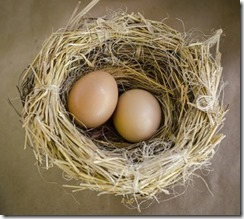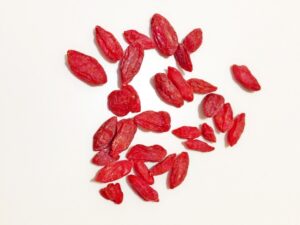Raising chickens is a lot of fun. I remember as a child, the excitement of new arrivals whether by incubation or a broody hen.
Although all the benefits are too numerous to mention in one post, I am going to give you my top 5 reasons to raise chickens.

# 1 No more composting
Forget drudging out to the pile, dumping kitchen scraps onto it and turning it daily.
Let the chickens do the work.
Food scraps go in one end, and out the other end comes compost. What a great machine.
Chickens will eat just about any food. I’ve even given them leftover meat. Some people have suggested that there are some foods a chicken should not eat, like apple seeds, avocados and citrus. But to be honest, I’ve never really been too careful about that. I figured if my family can eat it, so can the chickens. But I understand if you have reservation about those things. If you’re concerned, I suggest doing your own research on that.
Just dump the scraps into a large feed pan and watch the annihilation begin. Using a pan is a good idea, as there tends to be a lot of juice in the mix and they just love it. No sense in it seeping into the ground where it’s wasted. The chickens will consume the waste, and out the back door comes fertilizer.
I’ve always laid chips or pine shavings in the run. They will scratch and pick, mixing the manure into the ground. Every 3 or 4 days, just scrape off the top surface (about 1/2”) and toss into a wheelbarrow. This then goes into the garden as a mulch. I just layer it on top of the soil where I plan to plant. This is the absolute best soil enrichment on the planet. It is suggested not to add it when you have established plants or where you are going to plant right away as the raw chicken manure can burn your plants. However, the amount of manure is about 1/1000. This has never been a concern for me as I don’t add it in season. I add it in the fall and let it sit over the winter or add it in early spring and let it sit for a couple of months before planting.
# 2 Goodbye tics, fleas and all other creepy crawlies
If you let your chickens free range, they will seek and destroy anything smaller than a marble that crawls, walks or flies. This is good news for entomophobics (people afraid of insects). Chickens have unique eyes unlike humans. Our eyes work in tandem to focus on a certain object, then pass this information onto our brains. Chickens however have the ability to use one eye to scan for predators and the other to forage for food. They also track motion much better and can freeze frame better than any Nikon on the market.
# 3 They bring hours of enjoyment to your family
If you’ve never been around chickens, you are missing out on the pure enjoyment of just sitting and watching them. They never stop. All day long they are clucking, running, pecking and having a good time. Like humans, each chickens has his/her own personalities. Unless you have hundreds, you will get to know them personally and begin to predict their moves. They really are fascinating little creatures. Be aware though, once you start naming them and treating them like pets, you’ll never want to cull them for food or give them away once their egg production diminishes. We even had a Barred Rock rooster once that was so friendly, the moment you walked into the pen, he would come running over. And heaven forbid if you squatted down, he would hop right onto your lap expecting to be petted. Needless to say, he lived a ripe old age and never went into the soup pot. And since chicken viagra hadn’t been invented yet, we still could not get rid of him. And he didn’t even mind when we brought in a young Rhode Island Red rooster to take over his manly duties
# 4 You know where your food is coming from
 This may sound like an obvious one.
This may sound like an obvious one.
But in my opinion, the words “natural” and “free range” mean nothing. They are only marketing ploys.
What does natural even mean? The word has become so common place and distorted that it could mean anything. Some people even consider genetically modified organisms natural, which escapes me.
And who knows what free range means. Even eggs and chickens marked “organic” do not mean they are treated humanely and given lots of love and plenty of space to run free. It just means they aren’t fed GMOs and chemicals. that’s it. And frankly, that’s not good enough for me.
When you raise your own chickens, you are in complete control. You know what goes into them, and what comes out. Even if you choose to medicate your hens (which I prefer not to), you still are aware of it and can make choices accordingly. I strongly support giving your birds all organic feed from day 1. And if you eat organic produce, your chickens will also be getting good, healthy chemical free table scraps.
# 5 Self Sustainability
Here at “Grow Your Heirlooms”, I promote gardening and independence through growing heirloom vegetables, harvesting and saving your seeds for future growing. Raising your own chickens is a great addition to this venture. From producing compost and fertilizer, to providing protein rich eggs and meat. You won’t find a better feed to meat ratio on the planet. Many cities even allow you to maintain a small flock in your backyard.
They are easy to care for, provide hours of enjoyment and put food on your table. Is there any reason not to own a few? They have never disappointed me.









